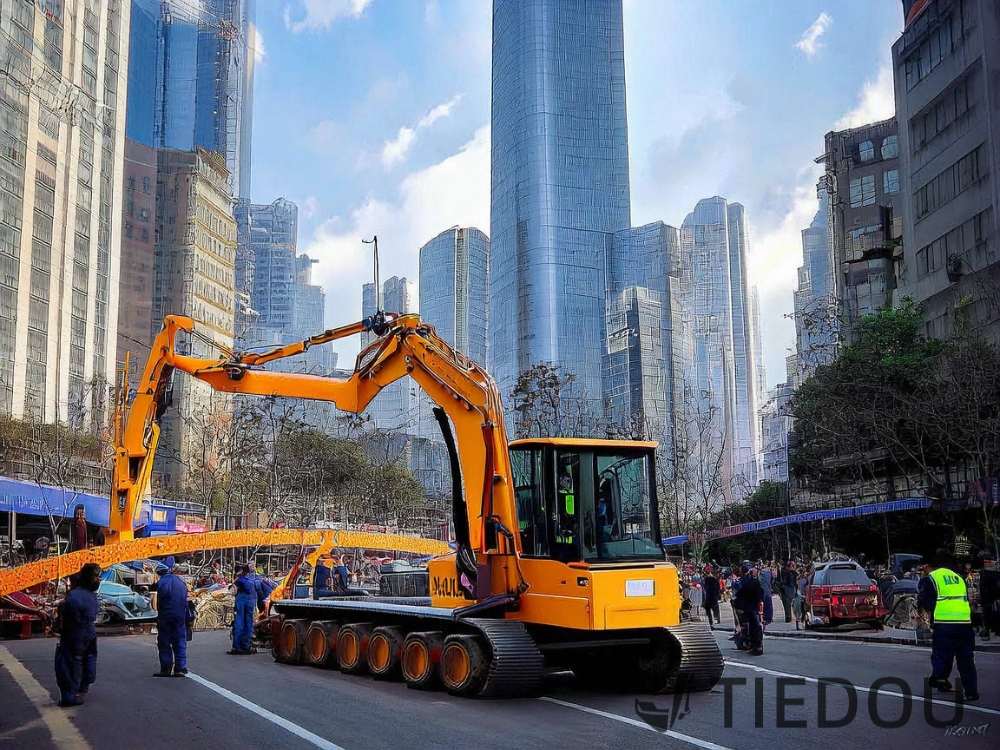Recommend Products
-
$29,000$29,999
-
$65,000$69,999
-
$130,000$140,000
-
$69,999$71,999
As global energy concerns and environmental awareness continue to grow, the excavator industry is seeing a transformative shift in power solutions. Moving from traditional fuel-powered engines to hybrid, electric, and even hydrogen energy, excavator power systems are evolving rapidly. These new energy options are reshaping the construction machinery market and paving the way for greener operations. This article will explore the development trends in excavator power sources, providing insights for industry professionals and users interested in sustainable construction solutions.

1. Traditional Fuel Power: Gradual Decline of a Longstanding Leader
Fuel-powered excavators have dominated the market for years, known for their strong power output and adaptability, particularly in remote areas lacking power infrastructure. However, the major drawback of these machines is high emissions and a significant carbon footprint. With stricter emission standards, the market share for fuel-powered excavators is decreasing, as many countries impose limitations on high-emission equipment.
In the future, fuel-powered excavators may still be used in large-scale and extreme conditions, such as mining or isolated sites, but emissions standards will be increasingly stringent. This trend is driving companies to research advanced emissions control and fuel efficiency technologies to extend the lifespan of traditional engines. Improvements in fuel efficiency are also seen as essential for keeping traditional fuel engines competitive during the transition to cleaner energy sources.

2. Hybrid Power: Combining Fuel and Electricity
Hybrid excavators, which combine fuel and electric power, are gaining traction in the market. These machines typically use electric power for low-load tasks and switch to fuel power for higher demands, improving both fuel economy and emissions control. For example, in high-frequency tasks like lifting and digging, hybrid systems can use electric power to lower fuel consumption, while fuel engines provide stability under heavy loads.
In the coming years, hybrid systems are likely to become widely used in urban construction, road maintenance, and small-scale projects due to their balance of power and environmental advantages. Unlike fully electric excavators, hybrids are not entirely dependent on charging stations or battery capacity, so they are less limited by power infrastructure. As a transitional solution, hybrid excavators can help reduce carbon emissions while paving the way for fully electric or hydrogen-powered equipment.

3. Electric Power: The Green Choice for Urban Construction
Electric excavators are emerging as a popular choice in urban construction, offering zero emissions and low noise levels. Recent advancements in battery technology and charging infrastructure have expanded the market for electric excavators. With no need for fuel, electric models are more environmentally friendly and have lower maintenance costs. Enhanced battery capacities are also gradually meeting the demands of urban construction tasks.
The development of electric excavators relies on breakthroughs in high-density battery technology and fast-charging solutions. Some manufacturers are exploring modular battery designs to allow quick battery swaps, maximizing operational uptime. Future smart construction sites may be equipped with charging stations and backup power sources, further supporting the use of electric equipment. Consequently, electric excavators are poised to play a critical role in noise-sensitive and environmentally regulated areas, such as city centers and residential zones.
Despite their unique advantages, electric excavators still face limitations in battery life, charging infrastructure, and overall weight. For heavy-duty or prolonged tasks, electric excavators may not yet match the capabilities of traditional fuel-powered models. Therefore, electric excavators will likely find their initial applications in shorter, intermittent tasks, with broader use possible as battery technology advances.

4. Hydrogen Energy: The Ultimate Power Source for Future Excavators?
Hydrogen energy is considered a potential ultimate solution for construction machinery, offering zero carbon emissions, long operational ranges, and fast refueling times. Hydrogen fuel cells produce electricity through a reaction between hydrogen and oxygen, with water as the only byproduct, resulting in a high degree of environmental benefit. Additionally, hydrogen fuel cells perform well in cold environments, unlike batteries that may suffer from reduced performance in low temperatures.
While hydrogen offers substantial environmental advantages, its technology is still under development. Key challenges include high hydrogen production costs, strict storage and transport conditions, and limited refueling infrastructure. Currently, some developed countries are actively building hydrogen infrastructure, and trial models of hydrogen fuel cell excavators have been released in Japan and South Korea. Over the next decade, as hydrogen technology matures, hydrogen-powered excavators could gradually gain a foothold in the market, partially replacing fuel and hybrid models.
5. Future Trends in Excavator Power Development
In the coming years, the share of fuel-powered excavators is expected to decline as hybrid, electric, and hydrogen models gain popularity. While fuel engines will continue to be used in high-demand and extreme environments, more environmentally friendly hybrid and hydrogen-powered options will gradually take over. Electric excavators will become the go-to choice in urban and environmentally regulated settings, and hybrid models will likely see widespread use in mid-sized projects as a transition technology.
Hydrogen-powered excavators hold promise for a significant market presence due to their environmental benefits and rapid refueling capabilities, particularly for large-scale construction projects requiring prolonged operation. The adoption of hydrogen energy depends on the gradual establishment of a global hydrogen infrastructure. Once the industry chain matures, hydrogen fuel may become the primary alternative to traditional fuel engines.
Conclusion: Future Trends and TIEDOU Excavator Trade Network’s Market Prospects
With global momentum towards green development and carbon neutrality, the future of excavator power is moving towards environmentally friendly, efficient, and high-performance options. As a leading platform in the used excavator market, TIEDOU Excavator Trade Network will continue to track and lead in adopting new technologies, offering clients the latest, most sustainable equipment options. Whether fueled by traditional power, hybrid technology, electricity, or hydrogen energy, TIEDOU aims to provide a comprehensive selection for clients, ensuring they have the right equipment for every operating environment.